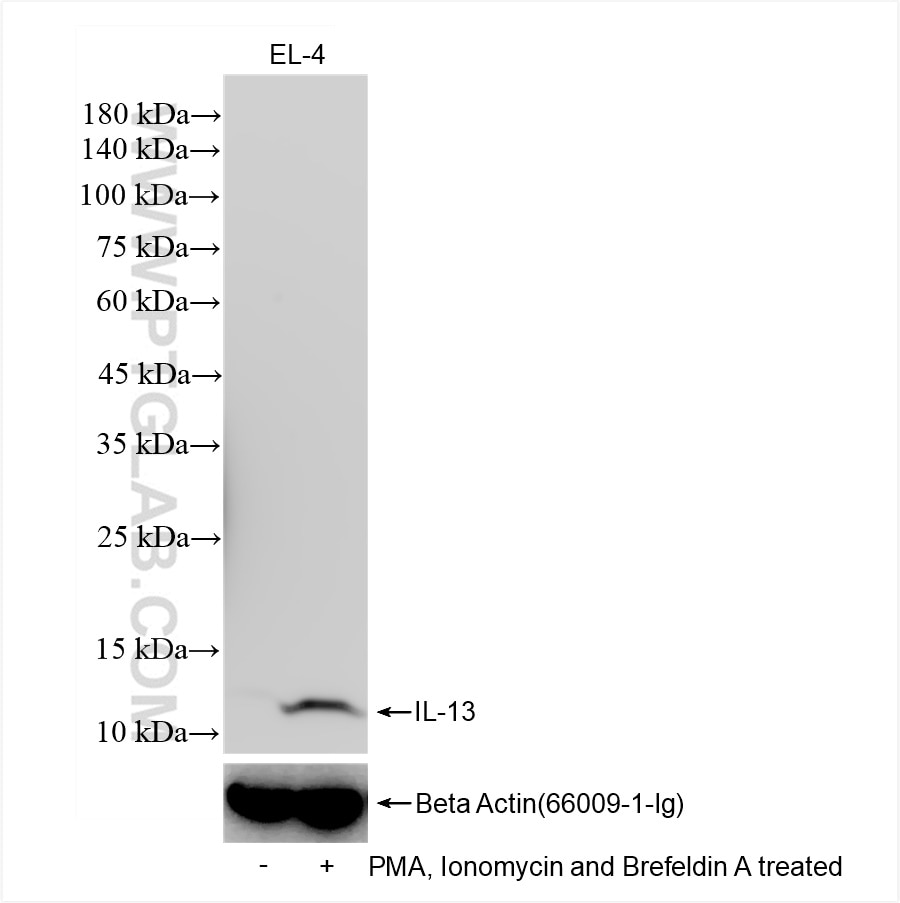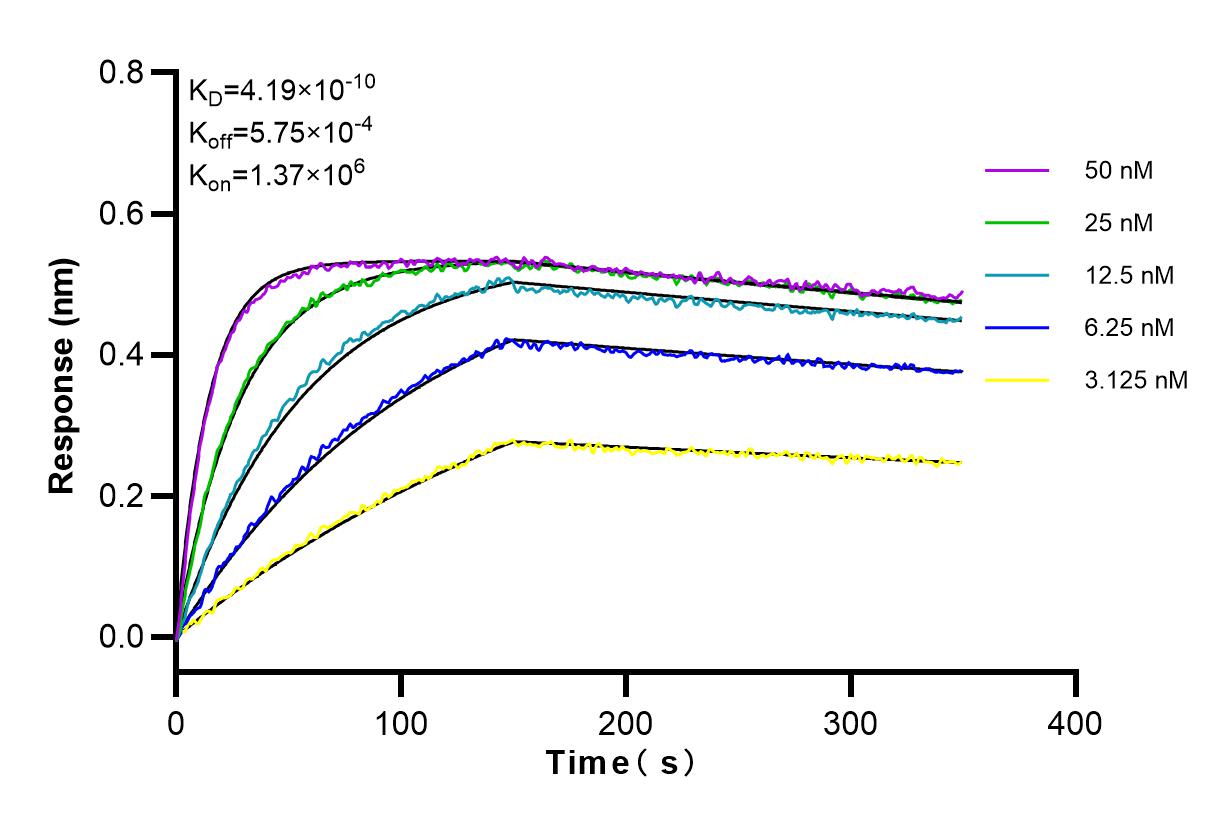Tested Applications
| Positive WB detected in | PMA, Ionomycin and Brefeldin A treated EL-4 cells |
Recommended dilution
| Application | Dilution |
|---|---|
| Western Blot (WB) | WB : 1:5000-1:50000 |
| It is recommended that this reagent should be titrated in each testing system to obtain optimal results. | |
| Sample-dependent, Check data in validation data gallery. | |
Product Information
83935-1-RR targets IL-13 in WB, ELISA applications and shows reactivity with mouse, rat samples.
| Tested Reactivity | mouse, rat |
| Host / Isotype | Rabbit / IgG |
| Class | Recombinant |
| Type | Antibody |
| Immunogen | Fusion Protein Predict reactive species |
| Full Name | interleukin 13 |
| Calculated Molecular Weight | 14kDa |
| Observed Molecular Weight | 12 kDa |
| GenBank Accession Number | NM_053828.1 |
| Gene Symbol | Il13 |
| Gene ID (NCBI) | 116553 |
| RRID | AB_3671517 |
| Conjugate | Unconjugated |
| Form | Liquid |
| Purification Method | Protein A purfication |
| UNIPROT ID | P42203 |
| Storage Buffer | PBS with 0.02% sodium azide and 50% glycerol , pH 7.3 |
| Storage Conditions | Store at -20°C. Stable for one year after shipment. Aliquoting is unnecessary for -20oC storage. 20ul sizes contain 0.1% BSA. |
Background Information
Rat IL-13 is a kind of cytokines, which plays important roles in allergic inflammation and immune response to parasite infection. (PubMed:9366558). Rat IL-13 displays the capacity to antagonize Th1-driven proinflammatory immune response and downregulates synthesis of many proinflammatory cytokines including IL1, IL6, IL10, IL12 and TNF-alpha through a mechanism that partially involves suppression of NF-kappa-B (PubMed:9366558).
Protocols
| Product Specific Protocols | |
|---|---|
| WB protocol for IL-13 antibody 83935-1-RR | Download protocol |
| Standard Protocols | |
|---|---|
| Click here to view our Standard Protocols |





